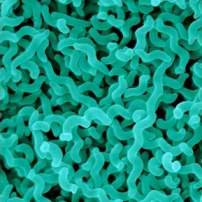Research agreement for Campylobacter treatment in poultry

GangaGen Life Sciences Inc. and the University of Nottingham are engaging in a major research project to develop a bacteriophage-based treatment for the control of Campylobacter bacteria in poultry.
GangaGen and the university are both leaders in bacteriophage research. Phages are naturally occurring agents that target and destroy bacteria with a high degree of efficiency, and do so selectively and specifically, without affecting beneficial bacteria or body cells.
The aim of this agreement is on building a business relationship to commercialise phage technology developed at the university that complements the existing phage expertise of GangaGen.
GangaGen is a developer of therapeutics based on phage technology for the control of disease-causing bacteria. The work on a phage product for the control of Campylobacter will complement the GangaGen’s food safety product portfolio, which also includes phage products against Salmonella and E. coli O157:H7.
Reducing the risk to consumers
Dr Ian Connerton, Northern Foods Professor of Food Safety, the University’s research partner in the agreement: “Our team’s research has demonstrated that certain phages specific for Campylobacter can significantly reduce the load of the bacteria carried by poultry. By implication, this should also reduce the risk to consumers by decreasing bacterial contamination of meat that is prevalent in poultry processing and is transferred to chicken meat on grocery shelves.”
“GangaGen believes that the place to start fighting food safety-related bacteria is at the farm where livestock production takes place, and this research agreement with the University of Nottingham allows us to continue building on that premise,” said Dr Rainer Engelhardt, CEO of GangaGen Life Sciences Inc. “The food industry and its regulators have stated that they believe that timely intervention is needed at the farm level to supplement the extensive, but not fully effective, controls already in place in food processing. GangaGen has demonstrated in production animal trials that we can isolate and use phages efficaciously, with full regard for safety, and that the phages are benign to animals, humans and the environment.”
“The combination of these two research teams provides strong impetus for creating a safe, effective and low cost solution to this pernicious consumer health risk,” said Engelhardt.
Related links:













